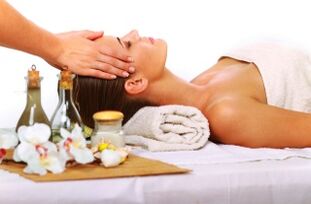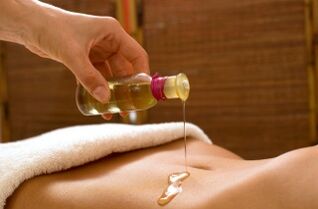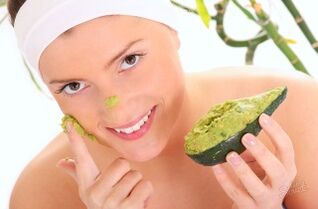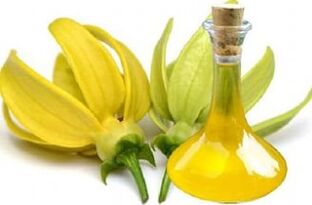
For the first time, skin rejuvenating oil was used several centuries before our era. Ancient Roman emperors, ancient Greek priestesses, and ancient Egyptian pharaohs anointed the skin with oils. At the time, they were almost the only cosmetics, literally worth their weight in gold and available only to the nobility.
With the development of the chemical industry, more effective synthetic creams emerged and, for a time, oils were unduly forgotten.
But today, when, after careful study, scientists have discovered new anti-aging properties of vegetable oils, they are experiencing a renaissance.
Nowadays, all over the world, there is a real boom in the use of natural cosmetics based on natural oils and plant extracts.
Why oils are useful
All vegetable oils can be divided into two broad groups - natural and essential. They can be used individually or in combination, buying ready-made compositions or composing them yourself. These products are obtained by cold pressing from quality natural raw materials. They can be obtained from nuts, seeds, grains and fruit kernels. These oils are primarily a valuable nutritional source as most of them contain:

- the strongest natural antioxidants - vitamins C and E;
- vitamin A which increases the skin's elasticity;
- B vitamins that improve the condition of skin, hair, nails;
- valuable trace elements - selenium, iodine, manganese, iron, copper, etc. ;
- vital minerals - potassium, calcium, magnesium, fluor, etc.
The secret to such a powerful effect of natural oils on human skin is that they have a chemical composition similar to sebum in their formula. In them, allergies are extremely rare, do not cause irritation and have a pronounced soothing and soothing effect.
Most of the time, natural vegetable oils are the basic components of creams and masks, in which essential oils with truly unique properties are easily dissolved.
Interestingly, in many ways essential oils still remain a mystery to humans. Due to their origin, they are volatile aromatic substances that can be found in different parts of plants. To get a small amount of pure essential oil, it is sometimes necessary to process tons of raw material, so the cost can be very high.
The most notable property of essential oils is their ability to penetrate the deep layers of the skin due to their low molecular weight structure. Furthermore, absolutely all of them have pronounced antiseptic and bactericidal properties and, in one way or another, are capable of influencing a person's mental state.
Now its medicinal properties are being studied. But even what we already know about them allows them to be used effectively both at home and in professional cosmetology.
natural oils

Natural vegetable oils are used not only for the face, but also for the entire body. Massage with them quickly and effectively improves the condition of the skin, moisturizes it and even smoothes fine wrinkles.
But not all of them are constantly in a liquid state. Some of them (cocoa, shea, coconut, etc. ) harden at room temperature and resemble oily paraffin in structure. Before use, they must be heated in a bain-marie until the solids dissolve. Due to this property, these oils often become the basic components for making homemade creams.
Different types of oils have different properties, so they must be selected individually depending on the condition of the skin and the problem that needs to be resolved with use.
The best product for you is one that is fully absorbed by the skin and does not leave an oily film on it. The most pronounced anti-aging properties of these oils:
- Arganovoye. It perfectly hydrates the skin and, thanks to its chemical composition, restores its pH balance and salt water. It is capable of smoothing out wrinkles and even superficial scars.
- Karite butter. It actively stimulates tissue regeneration, has powerful anti-inflammatory properties, improves skin elasticity and gives it a healthy glow.
- Avocado. It saturates the epidermis with valuable nutrients, penetrating its deep layers. Creates a protective barrier that retains moisture, absorbs quickly and gradually removes pigmentation.
- Cocoa. It contains unsaturated fatty acids, which quickly restore the skin's protective properties, and is also a natural sunscreen.
- Grape seed. Actively neutralizes free radicals, slowing the aging process, smoothes fine wrinkles and improves skin tone. Well removes bruises and bags under the eyes.
- Almond. Successfully combats cellulite, quickly tightens the skin, hydrates it perfectly, making it softer and more elastic.
- Sea buckthorn. It has the strongest healing and anti-inflammatory properties, is a powerful natural antioxidant, fights wrinkles successfully.

You should be aware that when working with natural oils you must avoid their contact with metal objects. They can be stored for up to six months, in a tightly closed glass container, away from exposure to ultraviolet rays, preferably in a cool, dark place.
Homemade creams prepared in natural form are kept in the fridge for a maximum period of one month.
Essencial oils
Essential oils have pronounced healing properties and their variety is very wide. Today, more than 3, 000 essential oil plants are known. However, there are just over 200 of these that undergo industrial processing. In cosmetology, only about 50 types of essential oils are used.
Most of the time, the following types of essential oils are used for facial rejuvenation:

- aniseed - refreshes the skin, increases its elasticity;
- orange - accelerates cell regeneration, handles cellulite well;
- basil - perfectly removes puffiness and dark circles;
- valerian - soothes, relieves irritation, smoothes wrinkles;
- conifers - improves complexion, activates blood circulation, strengthens capillaries;
- ylang-ylang - one of the most powerful skin tone stimulants, gives a lifting effect;
- coriander - quickly tightens the skin, makes it smooth and elastic;
- lavender - gently and effectively affects sensitive skin;
- lemon - lightens and rejuvenates, stimulates cell regeneration;
- juniper - with regular use, significantly reduces stretch marks;
- peppermint - an excellent natural stimulant of intracellular processes;
- neroli - increases firmness and elasticity, eliminates vascular networks, uniforms color;
- patchouli - refreshes, moisturizes, removes sagging and earthy color;
- rosemary - leaves skin fresh and elastic, rejuvenates quickly;
- rose is the most popular and versatile anti-aging agent;
- salvia - significantly improves the structure and appearance of the skin, visibly reducing pores;
- tea tree - a powerful antioxidant and antiseptic, restores the skin after acne and dermatitis.
Do not mix more than 2-3 types of essential oils at the same time as this can lead to a weakening of their healing properties. It is not highly recommended to apply 100% essential oils to the skin in its pure form - this can cause irritation, an allergic reaction and even burns. One-off applications of these are sometimes used to treat acne.
Criticism and contraindications

Reviews and results after using natural oils are the most positive.
In terms of effect, they are often not inferior to more expensive creams and have practically no contraindications. The only limitation is not applying them to areas affected by dermatoses and pustular eruptions.
Individual intolerance is extremely rare.
Almost all essential oils should not be used during pregnancy, breastfeeding and fever. Furthermore, for each of them, there are additional restrictions and contraindications that must be carefully studied before use.
Unlike natural oils, if used improperly, they can cause hypertension, irritation and even bronchial spasm. Because of their powerful effects on the body, they need to be treated with caution.





















